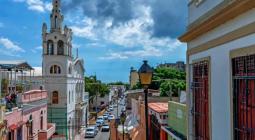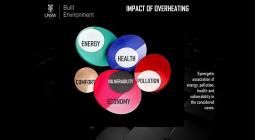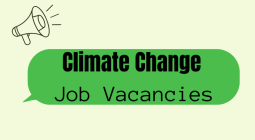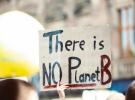Registration Opens for LAC Climate Week 2022 in Santo Domingo in July
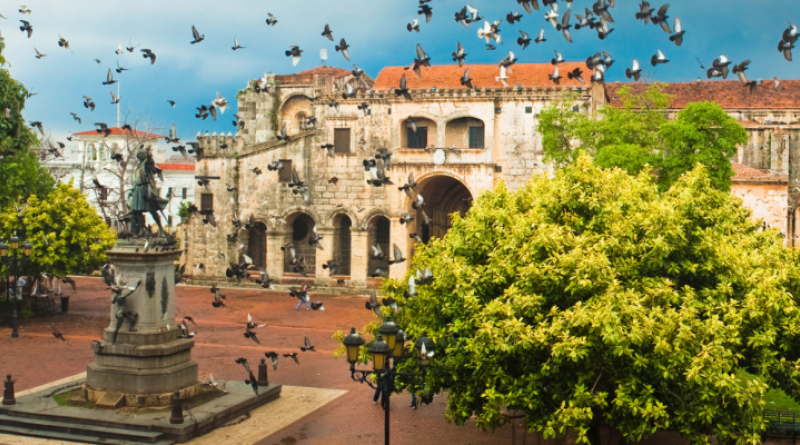
UN Climate Change News, 31 May 2022 – Registration is now open for this year’s Latin America and the Caribbean Climate Week 2022 (LACCW 2022), to be held from 18-22 July in Santo Domingo, hosted by the Government of the Dominican Republic. This marks the return of in-person Climate Weeks to the region and opens an opportunity for governments and stakeholders to work together on climate change. Visit the LACCW 2022 Registration Page to join the event or stay up to date on the latest LAC Climate Week news.
LACCW 2022 brings together regional stakeholders with the potential to shift the needle on the climate challenge. The event opens space for governments, private sector leaders, development organizations, youth and civil society to join solution-oriented dialogues, find common ground and forge partnerships for climate action. An Action Hub will feature inspiring examples of action happening right now to avert the worst climate impacts and build resilient communities.
UN Climate Change Executive Secretary, Patricia Espinosa, said: “With important decisions taken at last year’s UN Climate Change Conference COP26 in Glasgow, implementation of the Paris Agreement is accelerating. Regional collaboration emerged as a driver of global progress and the Glasgow Climate Pact encourages UN agencies and public and private sector leaders to work together towards credible and durable climate action. As we head towards COP27 in Sharm el-Sheikh in November, LACCW 2022 will bring together key stakeholders to advance regional climate action and help build momentum for a strong outcome in Egypt."
LACCW 2022 is hosted by the Government of the Dominican Republic and organized by UN Climate Change in collaboration with global partners UN Development Programme, UN Environment Programme and the World Bank Group. Partners in the region include the Economic Commission for Latin America and the Caribbean (UNECLAC), the CAF–Development Bank of Latin America, and the Inter-American Development Bank (IDB).
Looking forward to the event in Santo Domingo in July, Minister of Environment and Natural Resources of the Dominican Republic, Orlando Jorge Mera, said: “Latin American and the Caribbean Climate Week will focus on the climate change realities we face in the region. Our societies and economies are acutely affected by climate impacts, and we know climate action is a path to healthy development. Cities, businesses and communities must work together to find solutions. We look forward to the Climate Week to discuss our shared risks, identify these emerging opportunities and work together on solutions.”
Mr Max Puig, Executive Vice President of the National Council for Climate Change of the Dominican Republic, said: “Latin America and the Caribbean Climate Week is a big opportunity to achieve the real, deep and abiding involvement from every economic, social and political sector, which is a key element for walking into the inclusive transition that our societies need to deal with climate change, either to mitigate its causes or to adapt to its effects, on this occasion, from the perspective of regional cooperation”.
LACCW 2022 is part of the Regional Climate Weeks 2022 series, which will continue with Africa Climate Week 2022 later this year. MENACW 2022 kicked off the series in March in Dubai and engaged almost 4,000 people over four days. To see key takeaways from MENACW 2022, visit the MENACW 2022 page for videos of the wrap-up session, Action Hub and thematic sessions.
Visit www.regionalclimateweeks.org to explore the Regional Climate Weeks 2022 and see how they are making a difference on climate change in key regions.
MORE INFORMATION
- For media inquiries, contact UN Climate Change at press@unfccc.int or John Hay at jhay@unfccc.int.
- For inquiries in Spanish, please contact Lara Munoz Pelaez at LMunozPelaez(at)unfccc.int.
- Please note that news media need to register as regular participants.
- For more information, visit www.regionalclimateweeks.org
- Join the conversation on social media using the hashtag #ClimateWeekLAC
About the UNFCCC
With 197 Parties, the United Nations Framework Convention on Climate Change (UNFCCC) has near universal membership and is the parent treaty of the 2015 Paris Climate Change Agreement. The main aim of the Paris Agreement is to keep a global average temperature rise this century well below 2 degrees Celsius and to drive efforts to limit the temperature increase even further to 1.5 degrees Celsius above pre-industrial levels. The UNFCCC is also the parent treaty of the 1997 Kyoto Protocol. The ultimate objective of all agreements under the UNFCCC is to stabilize greenhouse gas concentrations in the atmosphere at a level that will prevent dangerous human interference with the climate system, in a time frame which allows ecosystems to adapt naturally and enables sustainable development.

